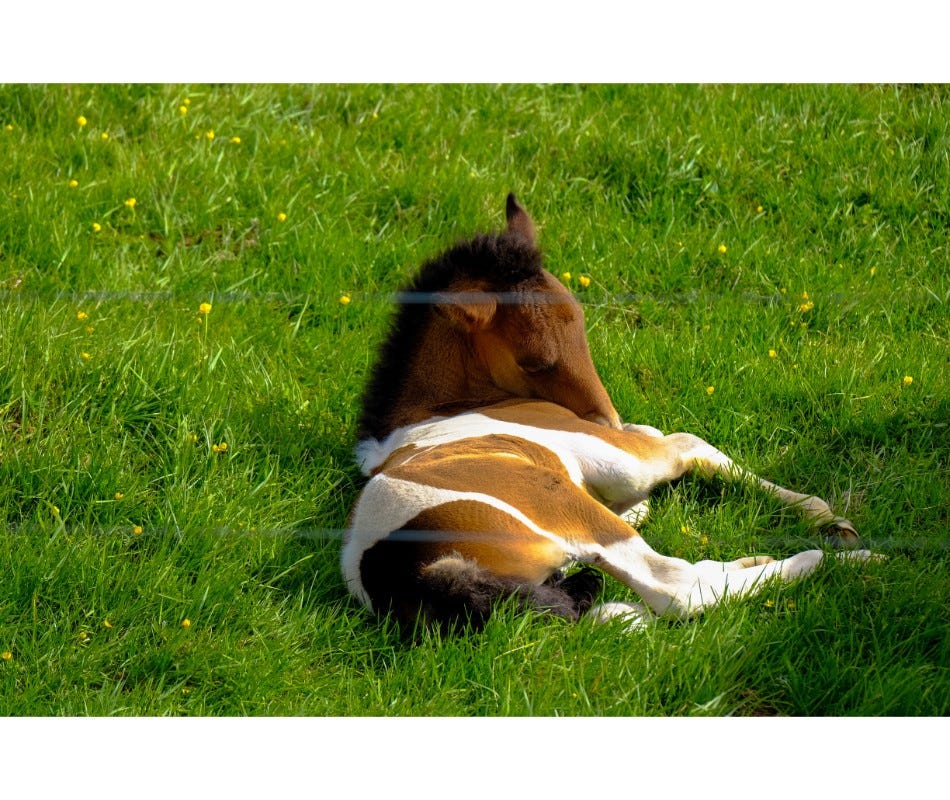We use cookies to make your experience better. To comply with the new e-Privacy directive, we need to ask for your consent to set the cookies. Learn more
How Necessary is Deworming for Young Horses?
Young horses tend to be more susceptible to parasite infection when compared to adults due to their underdeveloped immune system.
While deworming is an important protocol to ensure good health for horses, monitoring egg counts of the parasite is more important. Deworming should only be performed when needed and using a drug that is known to be effective against the target parasite. On the side of the foals, you would not want to sit and wait before the problem presents itself obviously before initiating treatment. Foals need regular treatment as well, coupled with fecal sample monitoring to determine whether the deworming agents are effective or not.

Conventionally, deworming for young horses starts at an early age, usually when the horse is less than a month old. Treatments can be repeated every month or twice a month during the early stages of life. However, this may not be such a great idea.
Issue on the Threadworms
Horse owners usually treat foals for threadworm infection as these worms are acquired from the mother’s milk. There’s an ongoing issue whether or not mares should be treated during foaling or if treatment is better initiated during the first few days after the birth of the foal, or if threadworm infection should be treated at all.
It is a common practice to deworm the mares during foaling to prevent transmission of threadworms to the foal via the milk, but this practice may be unnecessary. Threadworms are not a great threat and have not caused a disease in a long time. Deworming treatment during foaling is done especially to control this particular equine parasite. Even if the foal will experience a problem caused by the parasite, usually diarrhea, it can easily be treated. This particular problem only occurs if your horse is living in a wet, unhygienic area. Thus, if you are dealing with a threadworm problem, the best way to address it is through proper management as threadworm infections are not considered life-threatening. If you are confident with your parasite control program, there is no need to go the extra mile to control parasite infection.
How susceptible are weanlings?
Young horses, specifically weanlings and yearlings, will always be susceptible to parasite infection. However, as they reach 8 months, they develop immunity against roundworms and will protect themselves from infections caused by these parasites without the help of treatments. They do get infected but not to an alarming extent.
Once the youngster gets exposed to roundworms or ascarids, the immune system starts to perform its role, helping the foal’s body get rid and maintain a low population of the worms. As the young one matures, it can still harbor these parasites but they can be better off without intensive treatment. Therefore, deworming a foal is ideally done between the age of four to eight months since they do not have well-developed immune system at that time.
Importance of Egg Count Monitoring
Parasite control is not just about giving the right type of deworming agents to target parasites. It is also, more importantly, about surveillance of the number of eggs shed per manure and assessing how effective the treatment given to the horse. Your veterinarian can help you with the monitoring of your horse’s fecal egg count. If you know how effective your chosen treatment is, you have control over the success of your deworming program, keeping in mind not to overdo treatment as it could lead to the problem of drug resistance.
Horse owners should be careful enough when giving treatments for parasite control since giving too much or too little of the dose can compromise the overall efficacy of the drug – or worse, it can intensify the infection. There are no new drugs introduced in the market that works against the various parasites, so it is best to make the most out of the available drugs by using them properly as directed by the veterinarian.
The Role of Management
Different classes of chemical dewormers are available today. These drugs have long been used in the equine industry as it has also proven to be effective for most cases of parasite infection. Though chemical dewormers are widely available, they should not be the sole solution for controlling parasites in horses. Part of a successful parasite control program is to keep the worms at bay by maintaining a clean environment lessen the chances of contamination and reducing risk of transmission. Using deworming agents should be coupled with proper management practices, instead of relying on the drugs alone.
Drugs are ideally used as a second option to management. Relying too much on deworming agents may not be good. Managing your farm is a great way to control parasites and is much better than simply depending on the use of the chemical wormers.








Validate your login